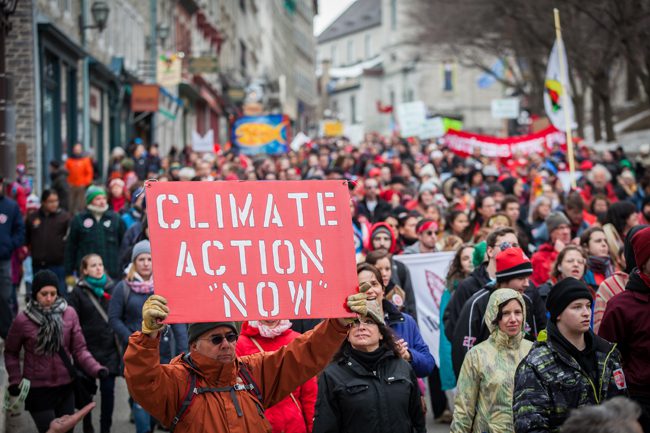It’s been said so often now. Canada has failed to achieve every international climate target it has ever set.
To reach a different outcome, Canada needs to take a different approach to setting and meeting international climate commitments. That was the premise behind the new legislation tabled last week, the Canadian Net-Zero Emissions Accountability Act. Though climate accountability is what Canada needs, and “Accountability” is in the name of the bill, as written the legislation ensures that future governments, but not this one, will be held to account for Canada’s climate commitments.
So how do you instill government accountability on climate change?
First, we need to legislate five-year carbon budgets that correspond to Canada doing its fair share to avoid catastrophic climate change. Carbon budgets are better than carbon targets because every year’s emissions count, not just emissions in the target year.
Second, there needs to be continuous assessment of how Canada is making progress towards achieving its five-year budgets, and actionable advice on how to ramp up action if we’re not on track. That transparency and oversight can only happen through an independent expert group that is given the resources to assess progress and make recommendations.
Finally, the government must be required to take action when Canada is falling behind. Progress reports and forward-looking advice don’t matter one bit if the government can put them on a shelf and continue not doing enough.

Unfortunately, the newly introduce legislation misses the mark in a number of important ways.
- No 2025 carbon budget or target. The legislation sets carbon neutrality (or net-zero: human-created carbon emissions are balanced by human-created carbon removals) as Canada’s climate goal for 2050, which is a good start. But not only does the legislation stipulate targets rather than budgets, the first 5-year target is…10 years away. 2030, not 2025. Yes, when the world’s leading climate scientists are telling us we have a decade to act, the legislation skips the most important 5-year milestone—the next one.
- The role of the expert advisory body is weak. That body should be an adequately-funded committee given the explicit mandate to set 5-year budgets based on the best available science and our 2050 net-zero goal. It should assess Canada’s progress towards every 5-year milestone—not just for 2050—and recommend actions. As it is written, the legislation gives the advisory body none of those roles. The government itself decides if it’s on track, and Canada’s environment commissioner only looks backwards, at how well individual climate policies have been implemented.
- The government does not have to do anything if Canada is not on track, only develop yet another plan. There must be immediate consequences when Canada is failing, namely government action—not more plans. There should be a legal obligation on the government to meet the established standards.
- No transparency on how efforts to tackle climate change are shared across provinces and sectors. Canada has failed on climate change in part because we have not had an open discussion on where emissions are going up and where they are going down. Carbon emissions from oil and gas companies and road transportation continue to increase, even as many other sectors reduce theirs. Emissions are high in provinces where oil and gas companies operate. Canada cannot succeed on climate change without acknowledging these facts, and acting on them. This legislation needs to institutionalize those discussions so we can have them out in the open, and they can inform action.
- No links to either Indigenous reconciliation or worker transition. Success on climate change depends on there being resources and a role for Indigenous Peoples to inform climate action, including addressing climate impacts. Also critically, a transition plan—and the resources to implement it—is needed for workers and communities that are dependent on fossil fuels. The legislation would be much stronger by making strong, and clear links to these related goals.
The good news is that there is always the opportunity to strengthen bills after they are introduced. Even more so in a minority Parliament when opposition parties have more power to make those changes. Environmental Defence will work with all parties over the coming months to ensure that this climate accountability bill does what it is supposed to do—set Canada on a path to success in tackling climate change.









